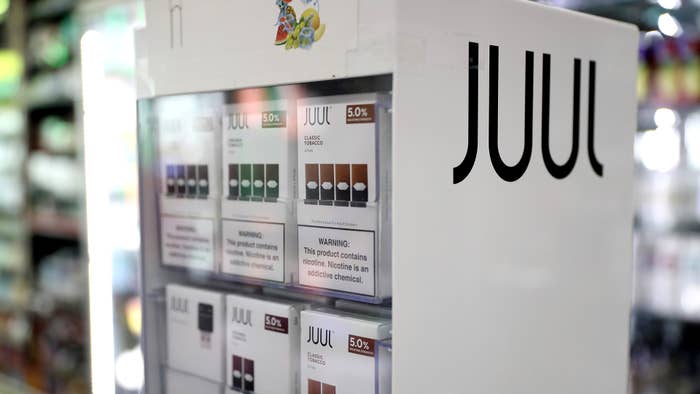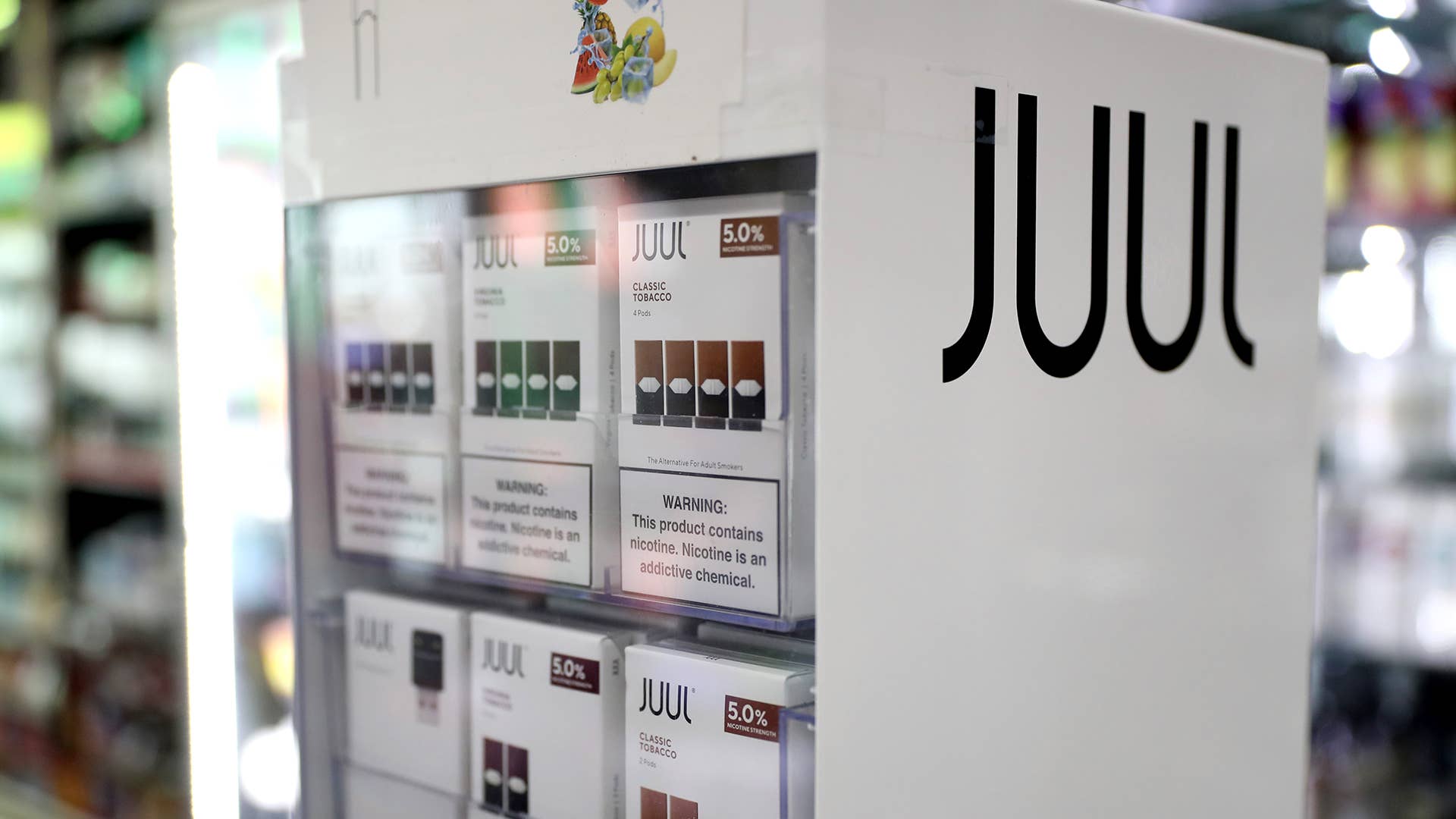
Electronic cigarette company Juul has agreed to pay the state of North Carolina $40 million to settle a lawsuit that alleged the company targeted young people in its marketing.
The New York Times reports that North Carolina Attorney General Josh Stein announced the settlement on Monday. The company has continued to deny that it targeted young people, leading to an increase in younger individuals addicted to its e-cigarette products. Stein, who filed the lawsuit in May 2019, said in a statement, “For years Juul targeted young people, including teens, with highly addictive e-cigarettes. It lit the spark and fanned the flames of a vaping epidemic among our children—one that you can see in any high school in North Carolina.”
The complaint accused the company of specifically designing and marketing its products to attract young buyers, and also accused Juul of misrepresenting the dangers of nicotine contained within its products. “This settlement is consistent with our ongoing effort to reset our company and its relationship with our stakeholders, as we continue to combat underage usage and advance the opportunity for harm reduction for adult smokers," Juul spokesman Joshua Raffel said in a statement.
As part of the settlement, Juul will only be permitted to sell its products behind counters in North Carolina. Third-party age verification systems also must be implemented for any online sales, and undercover teenage “mystery shoppers” will be sent to 1,000 stores each year to discern whether shopowners are selling Juul products to underage people. Additionally the company is forbidden from advertising its products with models younger than 35, and ads are not permitted to be on display anywhere near schools.
Other states that have filed similar lawsuits against Juul include California, New York, and Massachusetts. The majority of these cases allege that Juul products, originally advertised as an alternative to traditional cigarettes or as a tool to help smokers eventually kick the habit altogether, quickly became popular with people who had never smoked. Nicotine, which is highly addictive, is not believed to be deadly, but it can impact the developing brain, some research suggests.
It’s not just states taking legal action against Juul, though, as the Federal Trade Commission is suing Juul and its parent company Altria for violating federal antitrust laws. Altria, the largest tobacco company in the United States, paid $12.8 billion for a 35 percent stake of Juul in 2018, although the value of that investment has since shrunk to $1.5 billion amid Juul’s ongoing legal issues.

